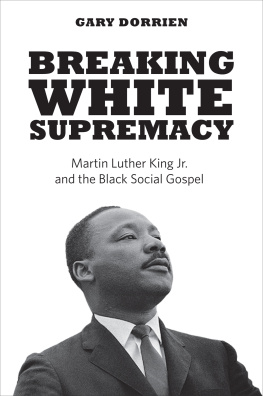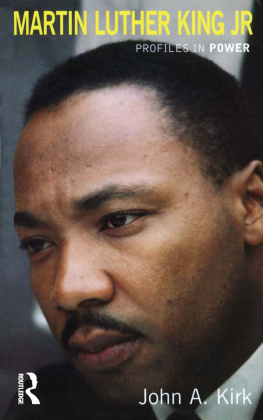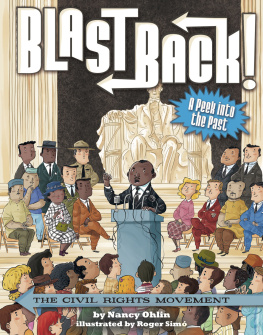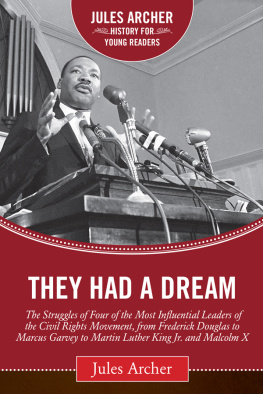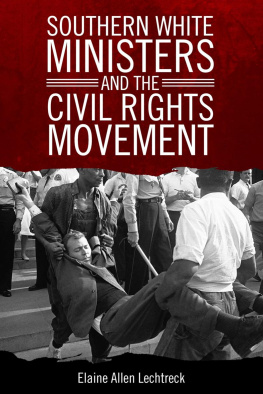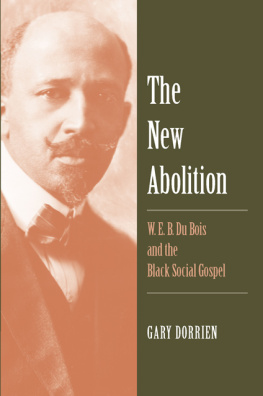
B REAKING W HITE S UPREMACY
BOOKS BY GARY DORRIEN
Logic and Consciousness
The Democratic Socialist Vision
Reconstructing the Common Good
The Neoconservative Mind: Politics, Culture, and the War of Ideology
Soul in Society: The Making and Renewal of Social Christianity
The Word as True Myth: Interpreting Modern Theology
The Remaking of Evangelical Theology
The Barthian Revolt in Modern Theology
The Making of American Liberal Theology:
Imagining Progressive Religion, 18051900
The Making of American Liberal Theology:
Idealism, Realism, and Modernity, 19001950
Imperial Designs: Neoconservatism and the New Pax Americana
The Making of American Liberal Theology:
Crisis, Irony, and Postmodernity, 19502005
Social Ethics in the Making: Interpreting an American Tradition
Economy, Difference, Empire: Social Ethics for Social Justice
The Obama Question: A Progressive Perspective
Kantian Reason and Hegelian Spirit: The Idealistic Logic of Modern Theology
The New Abolition: W. E. B. Du Bois and the Black Social Gospel

Published with assistance from the Louis Stern Memorial Fund.
Copyright 2018 by Yale University. All rights reserved. This book may not be
reproduced, in whole or in part, including illustrations, in any form (beyond that
copying permitted by Sections 107 and 108 of the U.S. Copyright Law and except by
reviewers for the public press), without written permission from the publishers.
Yale University Press books may be purchased in quantity for educational, business, or
promotional use. For information, please e-mail (U.S. office) or
(U.K. office).
Set in PostScript Electra type by IDS Infotech, Ltd.
Printed in the United States of America.
Library of Congress Control Number: 2016963360
ISBN 978-0-300-20561-9 (hardcover : alk. paper)
A catalogue record for this book is available from the British Library.
This paper meets the requirements of ANSI/NISO Z39.481992 (Permanence of Paper).
10 9 8 7 6 5 4 3 2 1
For Sara and Will,
With joy and thanksgiving

C ONTENTS

P REFACE
This book stands on its own, resumes the story told in my previous book, and fulfills my longtime desire to see someoneeventually, megive the black social gospel tradition its due recognition. The founding of the black social gospel in the late nineteenth and early twentieth centuries was a prolonged affair of forerunners and founders comprising four different ideological perspectives. This book is about something later and more specificthe mid-twentieth-century black church leaders who embraced the full-orbed, modern, progressive, justice-oriented, internationalist social gospel from the beginning of their careers and fulfilled it. They did not break their nation of white supremacy or other forms of oppression connected to it. But they inspired and led Americas greatest liberation movement.
This book is distinctly personal for me because it converges on the figure that propelled me into social justice activism and Christian ministry and then into an academic career. I came of age during the climactic years of the civil rights movement. Martin Luther King Jr. seized my attention before I understood much of anything about politics or religion, and his contributions to the black freedom and antiVietnam War movements anchored my worldview when I entered college. In my twenties and early thirties I worked as a solidarity activist and Episcopal pastor; in my mid-thirties I became an academic; today I have the same touchstone with which I began: the peacemaking and justice-making way of Jesus, as exemplified by King.
In my early career I wrote books on post-Kantian idealism, Social Democratic politics, and Christian Socialism, and I puzzled over why early black Christian Socialists such as Reverdy C. Ransom and George W. Woodbey were completely forgotten. Why were there no books on the convictions that linked Ransom, Woodbey, and W. E. B. Du Bois to King? That was the wellspring of what became my interest in the broader black social gospel tradition. My friend and role model from the mid-1970s on, Michael Harrington, had worked with King and Bayard Rustin, and I was a sponge for Mikes stories about Kings personality, movement leadership, and worldview. The King scholarship of that period did not capture the person that Mike described. More important, neither did it convey the southern black Baptist sources of Kings genius, partly because it relied on Kings seminary-oriented account of his story.
The revisionist King scholarship of the late 1980s and early 1990s corrected the latter deficiency, yielding richer accounts of Kings development and character. But it also yielded books that downgraded Kings graduate education and intellectualism in order to play up his early formation and/or explain his personal flaws. Meanwhile I tried to fill the gaps in my knowledge about Kings black social gospel forerunners and mentors. By 1995 I had a strong conviction that scholarship on the black freedom movements, progressive Christianity, and U.S. American history wrongly overlooked the very existence of the black social gospel tradition, let alone its immense importance. I sprinkled this conviction into various books and cheered as numerous scholarsespecially black religious historiansadvanced similar arguments. This book is immeasurably richer for having waited for the illuminating works of Victor Anderson, John J. Ansbro, Sarah Azaransky, Garth Baker-Fletcher, Lewis V. Baldwin, Wallace D. Best, Edward J. Blum, Taylor Branch, Rufus Burrow Jr., Anthea Butler, Clayborne Carson, Lawrence E. Carter Sr., David L. Chappell, James Cone, Keri Day, Quinton Dixie, Michael Eric Dyson, Peter Eisenstadt, Adam Fairclough, Juan Floyd-Thomas, Walter Fluker, David Garrow, Cheryl Townsend Gilkes, Eddie Glaude, Paul Harvey, Obery M. Hendricks Jr., Evelyn Brooks Higginbotham, Thomas F. Jackson, Randal Jelks, Robin D. G. Kelley, David Levering Lewis, Richard Lischer, Charles Marsh, Richard McKinney, Keith D. Miller, Aldon D. Morris, Peter Paris, Anthony Pinn, Albert J. Raboteau, Barbara Ransby, Jonathan Rieder, Barbara Dianne Savage, Nico Slate, Emilie Townes, Eboni Marshall Turman, Jonathan Walton, Cornel West, Preston Williams, Zachery Williams, and others.
To accentuate that the black social gospel was a public enterprise carried out by politically engaged church leaders and intellectuals, I have relied as much as possible on lectures, sermons, and published writings as source material. The black social gospel was emphatically public and political, and thus so is this book. Black social gospel leaders worked hard at building communities of resistance, they operated in the intertwined spheres of religious communities and movement politics, and they focused on racial justice. They had various theologies and ideologies but forged coalitions based on their pragmatic, modernist, unapologetically political commitment to racial justice. They anticipated what came to be called postcolonial theory but in a liberationist mode and without esoteric jargon. Though long denied the status of being a tradition, they forged an enormously important one.
Next page
